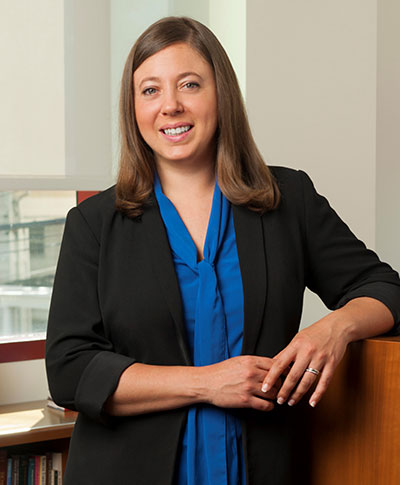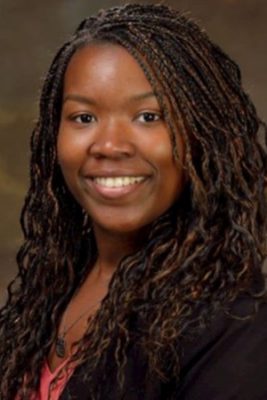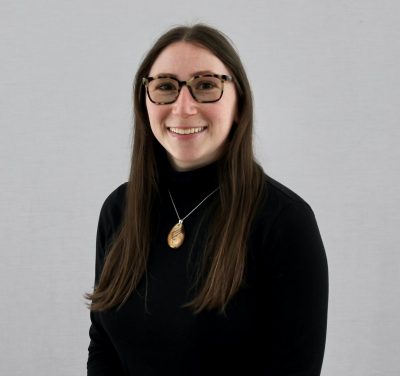Olga Jarrin
“What really attracted me to the BS to PhD program at UConn was the opportunity to individualize my program of study and participate in interdisciplinary faculty research.”
 I was extremely fortunate to have an employer that valued continuing education and permitted me to take advantage of opportunities to study community and public health nursing in Haiti, Cuba, and at local organizations in Connecticut.
I was extremely fortunate to have an employer that valued continuing education and permitted me to take advantage of opportunities to study community and public health nursing in Haiti, Cuba, and at local organizations in Connecticut.
Additionally, the chance to participate in faculty research and academic-community partnership projects helped me appreciate the many years and sometimes decades of work that lead to changes within a community or discipline.
One example was the opportunity I had to work with Dr. Neafsey during a couple phases of her program of research focused on improving medication management and safety of community-dwelling older adults.
Additionally, I completed my research residency with faculty at the Institute for Collaboration on Health, Intervention, and Policy working on a telehealth project for community organizations serving the state’s population living with HIV/AIDS.
Additional academic-community partnership projects that I was involved with included the School of Nursing’s workforce readiness programs at Windham and Hartford Public High Schools and UConn’s interdisciplinary Urban Service Track for health professions students.
Since graduation, I have completed postdoctoral fellowships in gerontological nursing and health services research at the University of Pennsylvania, and transitioned to a tenure-track faculty position in the School of Nursing at Rutgers, The State University of New Jersey.
At Rutgers, I teach in the PhD program and have a joint appointment in the Institute for Health, Health Care Policy, and Aging Research where I direct the Community Health and Aging Outcomes Laboratory.
My lab’s research focuses on demonstrating the value of home healthcare for older adults living with complex illness including Alzheimer’s disease and other dementias. My research has been funded by the John A. Hartford Foundation, the Agency for Healthcare Research and Quality, and the National Institutes of Health, and the Alliance for Home Health Quality and Innovation.
As a triple graduate of UConn School of Nursing I have been well prepared at each stage of my career, from working as a visiting nurse to leading an interdisciplinary research team on projects to improve health policy and care of a rapidly aging and diverse population.
Mallory Perry-Eaddy
The UConn SON BS-PhD program has been pivotal to my development as a nurse scientist.
 Initially, My education has provided me with a strong foundation in clinical inquiry, which has led me to pursue additional training at top-tier institutions such as the National Institutes of Health (NIH), University of Pennsylvania and the Children’s Hospital of Philadelphia where I completed a postdoctoral fellowship.
Initially, My education has provided me with a strong foundation in clinical inquiry, which has led me to pursue additional training at top-tier institutions such as the National Institutes of Health (NIH), University of Pennsylvania and the Children’s Hospital of Philadelphia where I completed a postdoctoral fellowship.
The culture at UConn is enriched by fellow nurse scientists, and interdisciplinary teams (both internal and external) conducting cutting edge research on complex biological and psychosocial issues in healthcare. Overall, the education and culture has prepared me for a fruitful career in translational research in pediatric critical care.
My experiences as a student prompted me to return to UConn as faculty. My lab is focused on understanding the biopsychosocial underpinnings that may impact a child’s recovery from critical illness. Within this research I collaborate with UConn Nursing colleagues as well as those at CT Children’s, which was also a rich resource throughout my BS-PhD journey.
Confidence C. Francis-Edoziuno
“For those seeking a rigorous, supportive, and research-driven PhD experience, UConn is the place to be.”

UConn’s School of Nursing provides an exceptionally welcoming and supportive environment that feels like a second home for every student. The inclusive atmosphere—created by caring faculty and a collaborative peer network—instills confidence and a strong sense of belonging from the very beginning.
From day one, the program’s rigorous research orientation sets the stage for future success. Early in the curriculum, students are immersed in activities that sharpen their scholarly writing, grant application, and publication skills, laying a solid foundation for their dissertation work and long-term academic career.
Beyond the School of Nursing, UConn offers a rich research ecosystem that encourages collaboration and academic growth. Structured milestones, such as grant applications and scholarly publications, ensure graduates are well-prepared for impactful careers in nursing research.
For those seeking a rigorous, supportive, and research-driven PhD experience, UConn is the place to be. It cultivates nurse scientists equipped to drive meaningful advancements in healthcare.
Hannah Scheibner
The faculty has demonstrated excellent mentorship that has helped me grow as a scientist, mentor, leader, and person.

I chose UConn’s Nursing PhD program because of the meaningful research conducted by faculty and the supportive and collaborative learning environment. There are many unique opportunities for interdisciplinary learning and professional development.
I have received hands-on experience in all parts of the research process, which has been rewarding and enriching. The faculty has demonstrated excellent mentorship that has helped me grow as a scientist, mentor, leader, and person. UConn’s Nursing PhD program has equipped me with the knowledge and skills to pursue a career as an innovative nurse scientist.
Individual results may vary.